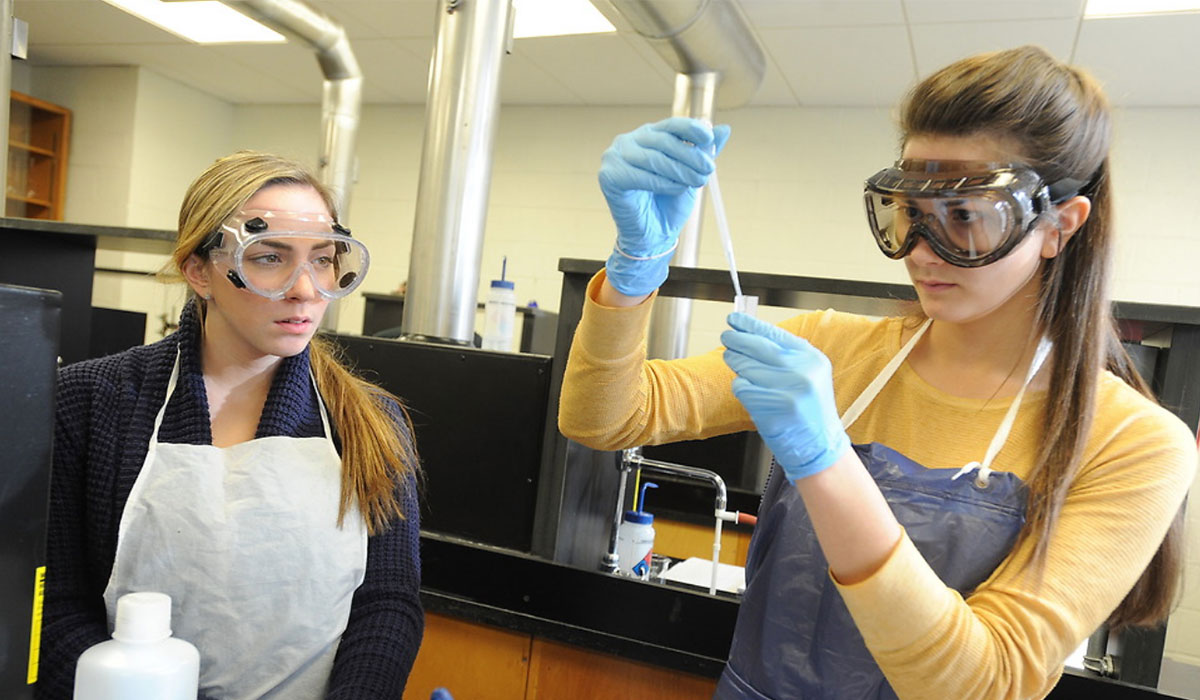
A minor in chemistry or environmental chemistry complements majors in all fields. It provides a quantitative background for liberal arts majors and rounds out a student’s portfolio of skills, making them more adaptable in future pursuits.
Especially for those students interested in the ethical treatment of the environment or in regulatory policies, the environmental chemistry minor offers exposure to measurements and techniques crucial to an understanding of this area.
-
Chemistry Minor Requirements
Chem 103/113 – General Chemistry I with lab
Chem 104 or 108 /114 – General Chemistry II with lab
Chem 203/213 – Organic Chemistry I with lab
Chem 204/214 – Organic Chemistry II with lab
+ two advanced courses from the following:
Chem 311 or Chem 442 – Analytical Chemistry or Environmental Chemistry Laboratory
Chem 351 – Physical Chemistry I
Chem 352 – Physical Chemistry II
Chem 401 – Inorganic Chemistry
Chem 408 – Instrumental Analysis and Chemical Spectroscopy
Chem 418 – Chemical Instrumentation Laboratory
Chem 471 – Biochemistry I
Chem 472 – Biochemistry II
Chem 496 – Biochemical Techniques
A student may petition the department to use one semester of undergraduate research – Chem 493 – as one of the two required advanced courses. -
Environmental Chemistry Minor Requirements
Chem 101 – Principles of Environmental Science
Chem 103/113 – General Chemistry I with lab
Chem 104 or 108 /114 – General Chemistry II with lab
Chem 311 or Chem 442 – Analytical Chemistry or Environmental Chemistry Laboratory
+ two courses from the following:
Chem 203/213 – Organic Chemistry I with lab
Chem 204/214 – Organic Chemistry II with lab
Chem 351 – Physical Chemistry I
Chem 352 – Physical Chemistry II
Chem 408 – Instrumental Analysis and Chemical Spectroscopy
Chem 418 – Chemical Instrumentation Laboratory
A student may petition the department to substitute one advanced Chem elective with undergraduate research – Chem 493.
